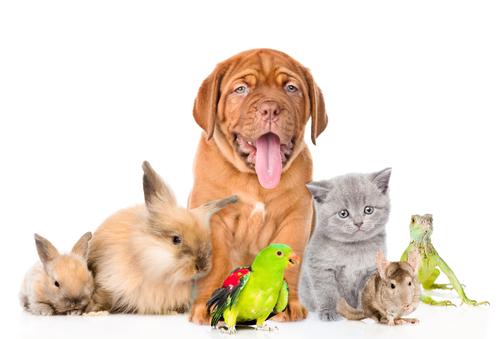I love pets and so do lots of others, so much so that a whole month (plus some days!) have been dedicated to pets and their proper care. National Pet Month runs from 1st April to 3rd May 2021.
Many fostering households have pets, and they are most definitely part of the family group. Pets, big and small, give lots of opportunities for helping to develop care giving skills in children, as well as giving children (and plenty of adults too) non-judgmental support. For children with additional needs the tactile aspect such as stroking a pet or touching the soft fur can provide a calming and comforting sensory experience.
Also, when a foster child arrives at the foster carers home for the first time, it can be a bit overwhelming for them, but be able to introduce a household pet can be a great icebreaker!
Some of the positive aspects of pet ownership on children’s development and mental health are:
Improving Mood & Emotional Management
“Playing with pets often creates positive emotions that can last throughout the day and may even help manage symptoms of anxiety and depression. One of the major reasons children find such comfort in the presence of pets is the non-judgmental presence that animals provide,”
Creating A Helpful Sense of Routine
“Amid the disruptions of the pandemic, many families are still struggling to feel that sense of structure and routine that traditional schooling, office spaces and in-person activities provided. Pets can help fill that void by offering their own specific routines.
Pets rely on us for eating, going on walks, and many other things. We tend to develop a schedule when we have pets, and we know that having a set routine and structure helps children to thrive.
In addition to teaching valuable life skills, caring for pets often involves things like going for walks or otherwise moving around, which brings the benefit of increased physical exercise.
Offering Companionship and Support
“Pets provide a powerful sense of companionship and comfort to kids. Studies show that pet owners experience less feelings of loneliness and increased sense of support.
Additionally, sensations such as touch can be very soothing, so extra cuddling with their furry, feathered, or scaly friend can provide children with a great coping skill.
Pets can help reduce loneliness and isolation, feelings that are particularly prevalent in this time of social distancing. They can also help give kids the social confidence they need when they do return to more traditional interactive settings.
To foster these positive benefits, parents/carers can commit to spending more time together as a family with the children and pets. Schedule some family playtime with your pet throughout the day. This could include playing with a special pet toy, going to a park or other outdoor adventures, or even taking time to teach your pet new tricks!”
Extracts are taken from article by Caroline Bologna (huffingtonpost.co.uk, 2021) full article link listed in Source section below.
Resources
http://www.peteducationresources.co.uk/learning-resources/#for-others – learning resources for teaching children and young people of all ages about caring for pets
Sources
https://www.nationalpetmonth.org.uk/ – official National Pet Month site
https://www.huffingtonpost.co.uk/entry/pets-child-mental-health-development_l_60086e22c5b6efae62fe00c4 – article by Caroline Bologna re benefits of pet companionship for children and families

by Lynsey Dobbs – Senior Recruitment Officer, UK Fostering
